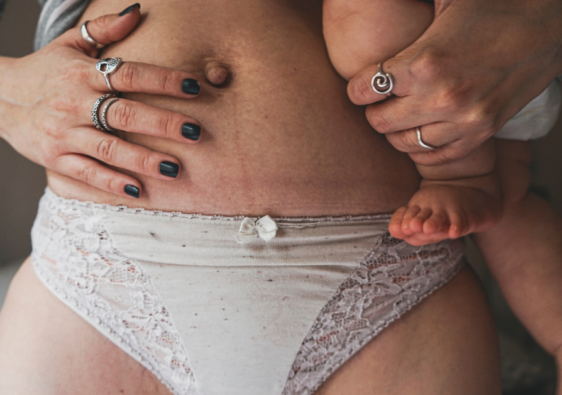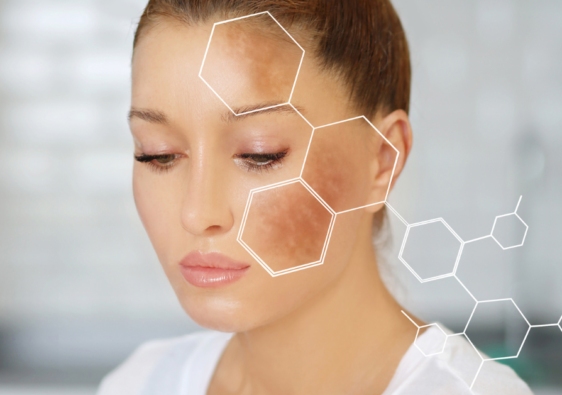When I became a new mother, I braced myself for sleepless nights and mood swings. What caught me off guard was the overwhelming exhaustion and persistent sadness that seemed to cloud every moment of my early motherhood experience.
I found myself grappling with a crucial question: Was I suffering from postpartum depression, or was this just the result of extreme sleep deprivation?
As I soon discovered, the line between these two conditions can be frustratingly blurry. Postpartum depression (PPD) and sleep deprivation are two of the most common challenges faced by new parents, often intertwining in a complex dance that can be difficult to untangle.
While up to 80% of new mothers experience the ‘baby blues’ – a brief period of mood swings and tearfulness in the first few weeks after birth – PPD is a more serious and long-lasting condition affecting about 15% of new mothers.
The relationship between PPD and sleep deprivation is bidirectional and complex. Sleep disturbances are both a symptom of PPD and a risk factor for it’s development.
This creates a vicious cycle that can be challenging to break.
The Hormonal Rollercoaster
One of the key factors in both PPD and sleep issues is the dramatic hormonal shift that occurs after childbirth. The rapid drop in estrogen and progesterone levels can wreak havoc on mood and sleep patterns.
Additionally, the hormone prolactin, crucial for milk production, can interfere with the body’s natural sleep-wake cycle.
During my own postpartum period, I felt like I was on an emotional rollercoaster. One moment I’d be overjoyed, gazing at my newborn with overwhelming love, and the next I’d be in tears, feeling utterly overwhelmed and inadequate.
This emotional instability made it difficult to relax and fall asleep, even when I had the opportunity.
The Role of Estrogen and Progesterone
Estrogen and progesterone levels rise dramatically during pregnancy, only to plummet after delivery. This sudden drop can lead to mood swings, anxiety, and depression.
Estrogen, in particular, plays a crucial role in regulating serotonin, a neurotransmitter associated with mood and sleep.
The rapid decline in estrogen can disrupt serotonin function, potentially contributing to both PPD and sleep disturbances.
Prolactin: The Double-Edged Sword
Prolactin, essential for milk production, surges after childbirth. While crucial for breastfeeding, high prolactin levels can interfere with the production of dopamine, another neurotransmitter involved in mood regulation.
This hormonal imbalance can contribute to feelings of depression and anxiety.
Plus, prolactin levels typically peak during the night, which can disrupt the natural circadian rhythm. This disruption can make it harder for new mothers to fall asleep even when their babies are resting, exacerbating the sleep deprivation issue.
The Sleep Deprivation Spiral
New parents lose an average of 109 minutes of sleep per night during the first year of their child’s life. This chronic sleep debt can have profound effects on physical and mental health, cognitive function, and overall well-being.
I remember feeling like I was in a fog, struggling to make simple decisions or even form coherent sentences. What I didn’t realize at the time was that moderate sleep deprivation can produce impairments equivalent to those seen in people with a blood alcohol concentration of 0.05%.
Essentially, I was trying to care for a newborn while functioning as if I were mildly intoxicated.
The Cognitive Impact of Sleep Deprivation
Sleep deprivation significantly impairs cognitive function. Studies have shown that lack of sleep affects:
- Attention and Concentration: Sleep-deprived individuals often struggle to focus on tasks and maintain attention for extended periods.
- Memory: Both short-term and long-term memory can be affected. New parents often report difficulty remembering simple things or feeling forgetful.
- Decision-making: Sleep deprivation can lead to impaired judgment and difficulty making decisions, which can be particularly challenging when caring for a newborn.
- Emotional Regulation: Lack of sleep can make it harder to control emotions, leading to increased irritability and mood swings.
The Physical Toll of Sleep Deprivation
Beyond cognitive effects, sleep deprivation can have serious physical consequences:
- Weakened Immune System: Chronic sleep deprivation can suppress immune function, making new parents more susceptible to illnesses.
- Hormonal Imbalances: Lack of sleep can disrupt the production of hormones that regulate appetite, potentially leading to weight gain.
- Increased Risk of Chronic Conditions: Long-term sleep deprivation has been linked to an increased risk of conditions such as diabetes, cardiovascular disease, and hypertension.
- Impaired Physical Recovery: For mothers recovering from childbirth, lack of sleep can slow down the healing process.
Recognizing the Signs
One of the challenges in distinguishing between PPD and sleep deprivation is that many symptoms overlap. Both can cause:
- Fatigue and exhaustion
- Mood swings
- Difficulty concentrating
- Irritability
- Anxiety
However, PPD often includes additional symptoms such as:
- Persistent feelings of sadness or emptiness
- Loss of interest in activities once enjoyed
- Feelings of worthlessness or excessive guilt
- Thoughts of harming oneself or the baby
If you’re experiencing any of these symptoms, especially the more severe ones, it’s crucial to seek help from a healthcare provider.
The Edinburgh Postnatal Depression Scale (EPDS)
The Edinburgh Postnatal Depression Scale is a widely used screening tool for PPD. It consists of 10 questions that assess a mother’s emotional state over the past week.
While not a diagnostic tool, it can help identify women who may be at risk for PPD and need further evaluation.
Some sample questions from the EPDS include:
- I have been able to laugh and see the funny side of things
- I have looked forward with enjoyment to things
- I have blamed myself unnecessarily when things went wrong
- I have been anxious or worried for no good reason
Mothers rate their responses on a scale, and a total score is calculated. A score above a certain threshold suggests a higher likelihood of PPD and indicates the need for further assessment by a healthcare professional.
The Importance of Self-Awareness
While screening tools are valuable, developing self-awareness is equally important. I found it helpful to keep a mood journal during my postpartum period.
By tracking my emotions, sleep patterns, and daily activities, I was able to identify trends and triggers that affected my mood and sleep quality.
Some key things to note in a mood journal include:
- Hours of sleep (including naps)
- Mood throughout the day
- Energy levels
- Appetite changes
- Interactions with the baby and others
- Any intrusive thoughts or feelings of hopelessness
This information can be invaluable when discussing your experiences with healthcare providers.
The Impact on Breastfeeding
For breastfeeding mothers, the effects of sleep deprivation can be particularly challenging. Lack of sleep can decrease milk production, potentially impacting the success of breastfeeding.
This can lead to extra stress and anxiety, further exacerbating mood issues.
I struggled with this myself, constantly worrying that I wasn’t producing enough milk for my baby. The stress of this concern, combined with the exhaustion of frequent night feedings, created a perfect storm of anxiety and self-doubt.
The Physiology of Milk Production
Understanding the physiology of milk production can help explain why sleep deprivation can be so impactful:
- Prolactin Levels: Prolactin, the hormone responsible for milk production, naturally peaks during sleep.
Sleep deprivation can interfere with this natural rhythm, potentially affecting milk supply.
- Stress Hormones: Lack of sleep increases stress hormones like cortisol, which can inhibit the release of oxytocin, the hormone responsible for milk letdown.
- Metabolic Impact: Sleep deprivation can affect metabolism and energy levels, which in turn can impact the body’s ability to produce milk efficiently.
Strategies for Maintaining Milk Supply
Despite these challenges, there are strategies that can help maintain milk supply while managing sleep deprivation:
- Frequent Nursing or Pumping: Maintaining a regular nursing or pumping schedule can help stimulate milk production, even when sleep is limited.
- Power Pumping: This technique involves pumping for short periods with breaks in between, mimicking a baby’s cluster feeding to stimulate milk production.
- Proper Nutrition and Hydration: Ensuring adequate intake of calories and fluids is crucial for maintaining milk supply, especially when sleep-deprived.
- Galactagogues: Some mothers find herbs like fenugreek or foods like oatmeal helpful in boosting milk supply.
However, it’s important to talk to a healthcare provider before using any supplements.
- Stress Reduction Techniques: Practicing relaxation techniques like deep breathing or meditation before nursing or pumping can help with milk letdown.
Breaking the Cycle
Breaking free from the PPD and sleep deprivation cycle often needs a multi-faceted approach. Here are some strategies that can help:
Prioritize Sleep
This might seem impossible with a newborn, but it’s crucial. Try to sleep when the baby sleeps, even during the day.
Creating a sleep-friendly environment can make a significant difference:
- Blackout Curtains: These can help create a dark environment conducive to sleep, even during daytime naps.
- White Noise Machine: This can help mask sudden noises that might wake you or the baby.
- Comfortable Bedding: Invest in comfortable, breathable bedding to enhance sleep quality.
- Temperature Control: Maintain a cool, comfortable temperature in the bedroom to promote better sleep.
Share Nighttime Duties
If possible, alternate night feedings with your partner. If breastfeeding, consider pumping so your partner can handle some night feedings.
This shared responsibility can significantly improve sleep quality for both parents.
For single parents or those without a partner available to help, consider enlisting the help of family members or close friends for occasional overnight support.
Improve Sleep Hygiene
Creating a relaxing bedtime routine and ensuring your sleep environment is conducive to rest can make a big difference:
- Consistent Sleep Schedule: Try to go to bed and wake up at the same time each day, even on weekends.
- Limit Screen Time: The blue light from screens can interfere with melatonin production.
Try to avoid screens for at least an hour before bedtime.
- Relaxation Techniques: Incorporate relaxation techniques like deep breathing, progressive muscle relaxation, or gentle stretching into your bedtime routine.
- Avoid Stimulants: Limit caffeine intake, especially in the afternoon and evening.
Seek Support
Don’t be afraid to ask for help from family, friends, or a postpartum doula. Having someone to watch the baby while you nap, help with household chores, or simply provide emotional support can be invaluable.
Support groups for new parents can also be a great resource. Sharing experiences with others who are going through similar challenges can provide comfort and practical advice.
Exercise
Even light exercise can improve mood and sleep quality. Start with gentle activities like walking with the baby in a stroller or postpartum yoga.
As you regain strength, you can gradually increase the intensity of your workouts.
Exercise has been shown to:
- Boost mood-enhancing endorphins
- Improve sleep quality
- Increase energy levels
- Reduce stress and anxiety
Always talk to your healthcare provider before starting any postpartum exercise routine.
Consider Therapy
Cognitive-behavioral therapy (CBT) has shown effectiveness for both PPD and sleep issues. CBT can help you:
- Identify and challenge negative thought patterns
- Develop coping strategies for managing stress and anxiety
- Improve sleep habits and overcome insomnia
Other therapeutic approaches that may be helpful include:
- Interpersonal Therapy (IPT): Focuses on improving relationships and social support
- Mindfulness-Based Cognitive Therapy (MBCT): Combines CBT techniques with mindfulness practices
Medication
In some cases, antidepressants may be necessary. Always talk to a healthcare provider about the risks and benefits, especially if breastfeeding.
Common medications used to treat PPD include:
- Selective Serotonin Reuptake Inhibitors (SSRIs): These are often the first-line treatment for PPD.
Examples include sertraline (Zoloft) and fluoxetine (Prozac).
- Serotonin-Norepinephrine Reuptake Inhibitors (SNRIs): These may be prescribed if SSRIs are not effective.
Examples include venlafaxine (Effexor) and duloxetine (Cymbalta).
- Brexanolone (Zulresso): This is the first drug specifically approved for the treatment of PPD.
It’s administered via IV infusion over 60 hours in a healthcare setting.
Keep in mind that medication effects can take several weeks to become noticeable, and finding the right medication and dosage may require some trial and error.
The Role of Social Support
The importance of social support in managing both PPD and sleep issues cannot be overstated. In many non-Western cultures, there are traditions of providing extensive support to new mothers. For example, in China, there’s a practice called ‘sitting the month’ where new mothers are cared for by family members for a full month after giving birth.
In contrast, many Western mothers face isolation and unrealistic expectations of quickly returning to ‘normal’ life. This lack of support can exacerbate both PPD and sleep problems.
Cultural Practices Supporting New Mothers
Many cultures around the world have traditional practices that support new mothers:
- Latin American “La Cuarentena”: A 40-day period where new mothers rest and recover while family members take care of household duties and older children.
- Indian “Jaappa”: A period of 30-40 days where new mothers are cared for by female relatives, given special foods, and encouraged to rest.
- Japanese “Satogaeri Bunben”: New mothers return to their parents’ home for an extended period of support after giving birth.
These practices recognize the need for rest, support, and community in the postpartum period.
Creating a Support Network
For those without access to traditional support systems, creating a support network is crucial. This can include:
- Partner Support: Involving partners in childcare and household responsibilities can significantly reduce the burden on new mothers.
- Family and Friends: Don’t hesitate to ask for and accept help from family and friends.
This could involve meal preparation, childcare, or household chores.
- Postpartum Doulas: These professionals provide in-home support for new parents, offering practical help and emotional support.
- Support Groups: Joining a new parents’ group or PPD support group can provide a sense of community and shared experience.
- Online Communities: For those unable to attend in-person groups, online forums and social media groups can provide a virtual support network.
The Impact of Social Support on PPD and Sleep
Research has consistently shown that strong social support can reduce the risk of PPD and improve sleep quality in new mothers. Social support can:
- Reduce feelings of isolation and loneliness
- Provide practical help, allowing for more rest
- Offer emotional validation and understanding
- Increase self-efficacy in parenting skills
Novel Approaches
Recent research has explored some interesting approaches to treating PPD and sleep issues:
Light Therapy
Traditionally used for seasonal affective disorder, light therapy has shown promise in regulating circadian rhythms and improving mood in postpartum women. Light therapy involves exposure to bright, artificial light that mimics natural outdoor light.
How it works:
- Light therapy can help regulate the body’s internal clock, which is often disrupted in new parents.
- It may boost serotonin levels, potentially improving mood.
- Regular exposure to bright light in the morning can help establish a more normal sleep-wake cycle.
A typical light therapy session involves sitting near a light box for about 20-30 minutes each morning. It’s important to use a light box specifically designed for this purpose, as they filter out harmful UV rays.
Sleep Deprivation as Treatment
Paradoxically, some studies have investigated the potential of sleep deprivation as a rapid, albeit temporary, treatment for depression, based on it’s mood-elevating effects in some individuals. This approach, known as wake therapy or sleep deprivation therapy, involves staying awake for an extended period (usually 36 hours) followed by a recovery sleep period.
The theory behind this approach:
- Sleep deprivation may reset circadian rhythms that have been disrupted.
- It may lead to a rapid increase in neurotransmitters associated with mood regulation.
However, this approach is still experimental and should only be attempted under close medical supervision. It’s not a long-term solution and is often combined with other treatments like light therapy and medication.
Mindfulness and Meditation
Mindfulness-based interventions have shown promising results in managing both PPD symptoms and sleep issues. These practices can help manage stress and improve sleep quality.
Benefits of mindfulness for new parents:
- Reduces rumination and worry
- Improves emotional regulation
- Enhances self-compassion
- Promotes relaxation, potentially improving sleep quality
Mindfulness practices for new parents can be as simple as:
- Taking a few deep breaths while feeding the baby
- Practicing body scan meditation during naptime
- Using mindful walking techniques during stroller walks
Technology-Assisted Interventions
With the rise of digital health solutions, several apps and online programs have been developed to support new parents:
- Sleep Tracking Apps: These can help parents understand their sleep patterns and identify areas for improvement.
- Mood Tracking Apps: Regular mood tracking can help identify patterns and triggers for depressive symptoms.
- Online CBT Programs: These provide accessible cognitive-behavioral therapy techniques that parents can practice at home.
- Virtual Reality (VR) Therapy: Some researchers are exploring the use of VR for relaxation and stress reduction in new parents.
While these technological solutions can be helpful, they should be used in conjunction with, not as a replacement for, professional medical advice and treatment.
The Father’s Experience
It’s important to recognize that fathers and non-birthing partners can also experience postpartum depression, with rates estimated at up to 10%. They may also suffer from sleep deprivation, especially if trying to support their partner by sharing nighttime duties.
Paternal Postpartum Depression (PPPD)
PPPD is often overlooked but can have significant impacts on the family unit. Symptoms in fathers may present differently than in mothers:
- Increased irritability or anger
- Withdrawal from family and friends
- Increased use of alcohol or drugs
- Impulsive or risk-taking behavior
- Physical symptoms like headaches or digestive issues
Risk factors for PPPD include:
- History of depression
- Relationship difficulties
- Financial stress
- Lack of social support
- Partner experiencing PPD
Supporting Fathers and Non-Birthing Partners
Strategies to support fathers and non-birthing partners include:
- Encouraging Open Communication: Create a safe space for partners to express their feelings and concerns.
- Involving Partners in Childcare: Active involvement in childcare can boost confidence and strengthen the parent-child bond.
- Promoting Self-Care: Encourage partners to maintain their own physical and mental health through exercise, proper nutrition, and stress-management techniques.
- Seeking Professional Help: If symptoms persist, encourage partners to seek help from a mental health professional.
- Joining Support Groups: Many communities offer support groups specifically for new fathers or non-birthing partners.
Long-Term Implications
The effects of PPD and sleep deprivation aren’t limited to the immediate postpartum period. Research has shown that untreated maternal depression can have long-term effects on child development, including cognitive, emotional, and behavioral problems.
Impact on Child Development
Untreated PPD can affect children in various ways:
- Cognitive Development: Children of mothers with untreated PPD may show delays in language acquisition and problem-solving skills.
- Emotional Regulation: These children may have difficulty managing their emotions and may be more prone to anxiety and depression later in life.
- Behavioral Issues: Some studies have found an increased risk of attention deficit hyperactivity disorder (ADHD) and conduct problems in children of mothers with PPD.
- Attachment: PPD can interfere with the formation of secure attachment between mother and child, which is crucial for healthy emotional development.
Long-Term Health Risks of Chronic Sleep Deprivation
Chronic sleep deprivation has been linked to a host of health issues, including:
- Increased Risk of Obesity: Lack of sleep can disrupt hormones that regulate appetite, potentially leading to weight gain.
- Diabetes: Chronic sleep deprivation can affect insulin sensitivity, increasing the risk of type 2 diabetes.
- Cardiovascular Disease: Poor sleep is associated with an increased risk of high blood pressure, heart disease, and stroke.
- Weakened Immune System: Chronic sleep deprivation can suppress immune function, making individuals more susceptible to infections.
- Mental Health Issues: Long-term sleep problems are associated with an increased risk of anxiety disorders and depression.
- Cognitive Decline: Some studies suggest that chronic sleep deprivation may increase the risk of cognitive decline and dementia in later life.
Breaking the Cycle for Future Generations
Addressing PPD and sleep issues in new parents is crucial for their immediate well-being and for the long-term health of the entire family. By seeking help and implementing strategies to manage these challenges, parents can:
- Improve their own mental and physical health
- Enhance their ability to provide responsive, nurturing care to their children
- Model healthy coping strategies and self-care for their children
- Reduce the risk of intergenerational transmission of mental health issues
Key Takeaways
- Postpartum depression and sleep deprivation often co-occur and can exacerbate each other.
- Hormonal changes play a significant role in both conditions.
- Recognizing the signs of PPD is crucial for getting appropriate help.
- Breaking the cycle often needs a multi-faceted approach, including prioritizing sleep, seeking support, and potentially considering therapy or medication.
- Social support plays a vital role in managing both PPD and sleep issues.
- Fathers and non-birthing partners can also experience postpartum depression and should be supported.
- Untreated PPD and chronic sleep deprivation can have long-term impacts on both parental health and child development.
- Seeking help and implementing coping strategies can break the cycle and promote long-term family well-being.
Frequently Asked Questions
What is postpartum depression?
Postpartum depression is a mood disorder that can affect women after childbirth. It involves feelings of extreme sadness, anxiety, and exhaustion that may make it difficult for new mothers to care for themselves or their babies.
How long does postpartum depression last?
The duration of postpartum depression varies. Without treatment, it can last for several months or even years.
With proper treatment, many women start to feel better within a few weeks to months.
Can fathers get postpartum depression?
Yes, fathers can experience postpartum depression. It’s estimated that up to 10% of new fathers may experience paternal postpartum depression.
How does sleep deprivation affect new parents?
Sleep deprivation can lead to fatigue, irritability, difficulty concentrating, and mood changes. It can also weaken the immune system and increase the risk of developing postpartum depression.
What are some natural remedies for postpartum depression?
Natural remedies that may help with postpartum depression include regular exercise, a healthy diet, getting adequate sleep, practicing mindfulness or meditation, and seeking social support. However, these should not replace professional medical advice.
How does breastfeeding affect postpartum depression?
The relationship between breastfeeding and postpartum depression is complex. While breastfeeding can release mood-boosting hormones, difficulties with breastfeeding can also contribute to stress and depression in some women.
Can postpartum depression affect the baby?
Untreated postpartum depression can affect a baby’s development. It may lead to difficulties with bonding, delays in cognitive and emotional development, and increased risk of behavioral problems later in childhood.
What is the difference between baby blues and postpartum depression?
Baby blues are mild mood changes and feelings of worry, unhappiness, and fatigue that many women experience in the first two weeks after having a baby. These feelings typically decide on their own.
Postpartum depression is more severe, lasts longer, and may require treatment.
How can partners support someone with postpartum depression?
Partners can offer support by helping with childcare and household tasks, encouraging the affected person to seek professional help, listening without judgment, and ensuring they get breaks for self-care and rest.
Is it safe to take antidepressants while breastfeeding?
Some antidepressants are considered safe during breastfeeding, but it’s crucial to discuss the risks and benefits with a healthcare provider. They can help determine the safest option based on individual circumstances.



